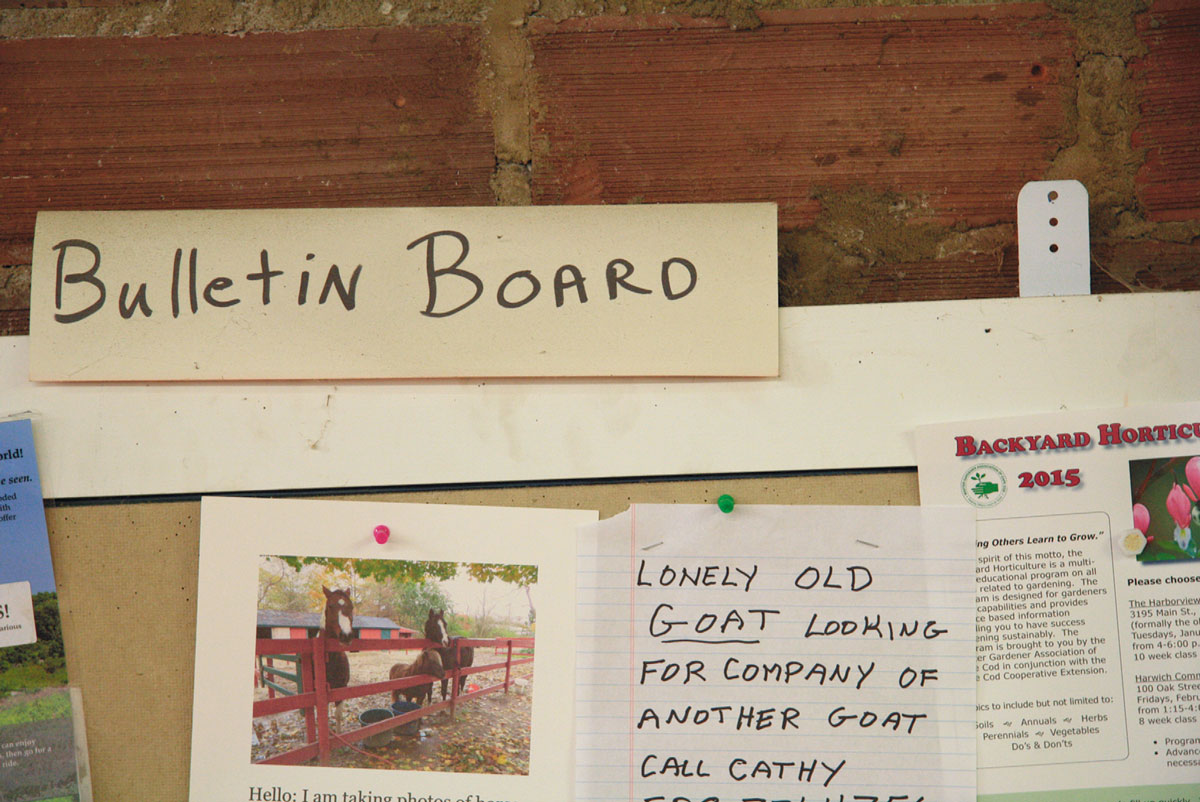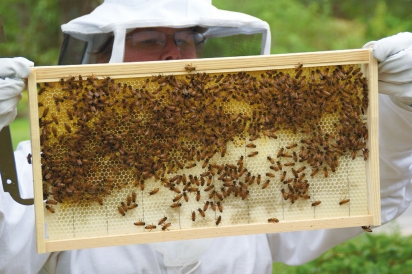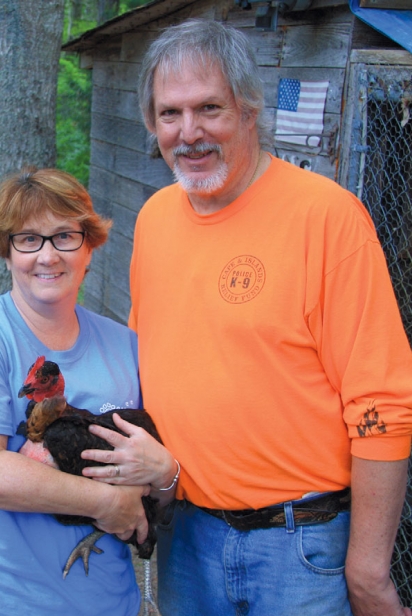Homeward Bounty: The Rise of the Recreational Farmer
Take a good look. Do you see them? They’re all around you. They could be your neighbors, your co-workers, your friends or even your family. They may be difficult to spot. They look like you. They talk like you. They even dress like you. Yet, they are there.
They could be doctors, lawyers or bankers by day, but when they return home from their full-time vocation, they slip into an old pair of jeans, a worn t-shirt and their alter egos…farmers! Sure, they may not wear a cape, or have a large “F” emblazoned across their chest, but they do have the boots. And with those boots, there’s no need to leap tall dung heaps in a single bound.
There are different terms attached to them: homesteaders, hobby or recreational farmers. The term “homesteader” may conjure up visions of the Oklahoma Land Rush of 1889 or Grant Wood’s American Gothic, but today it’s a term that simply describes someone striving to be more self-sufficient. That’s something that so many Cape Codders embrace, so it’s no wonder that homesteading has taken hold here and thrived. Like professional farmers, they have a passion for cultivation. Unlike their paid counterparts, most homesteaders work their little plots of land for the pure joy and yield of it all. Perhaps the biggest difference between the two is that for the farmer, it’s a career. For the homesteader, it’s done outside of the career.
Many of us are hobby farmers on some limited level. Whether we tend to a backyard garden or a simple herb-filled window box, we are working the soil to raise for our own sustenance. Sure, some homesteaders may have started with a simple planter of basil on the back deck and a few spindly tomato plants, but they have certainly taken things to a new level, raising a multitude of living things that span the plant and animal kingdoms. While the hobby farmer may have a few raised beds to grow some staple vegetables, the homesteader could have hundreds of square feet of yard turned into a small farm. The recreational farmer quite possibly has jumped into the chicken fad that the homesteader started years ago and has expanded the list of livestock to include ducks, geese, goats or even pigs.
Joaquin “Joe” Cesar of the Barnstable Farm & Pet store in West Barnstable says the chicken trend has been going for over ten years. “With a life span of five to seven years, we’re now seeing people return for more chickens,” Joe points out. “And if you want to keep yourself in eggs, you need to rotate in new chickens to replace the ones who stop laying after two to three years,” he adds. So, if raising chickens were a mere fad, it would have started to fizzle by now. In fact, it continues to grow.
“We have new people coming in all the time to buy their first chicks,” he states, as a mother and her giddy young children cash out at the register with their purchase of a heat lamp, a bag of wood shavings and food to go with a little box containing four baby chicks; all the makings of a starter kit into the world of homesteading. Barnstable Farm & Pet sold nearly 7000 chicks last year and could hit 10,000 this year!
With the increased popularity come the companies that will supply specialty items to the hobby chicken farmer who has it all…almost. Products like a chicken carrier (picture a sling with handles) for those who want Clucky to go with them wherever they roam. How about chicken diapers? Yes, diapers to prevent accidents on those little rooster road trips. Joe does try to convince people to do their homework before diving into rearing livestock. Some people reach out to him to unload their older hens that have aged past the egg-laying years. “I tell them I’ll find them a good home,” he chuckles. When they’re concerned that new home will be a roasting pan, he smiles. “I don’t ask questions!”
Whether it’s for the egg production or simply the relaxation that chicken farmers say they get when they’re outside with their “girls”, the joy and benefits of raising chickens are being realized by more and more people. It can also lead some folks to raising other types of animals in their growing backyard menagerie. Judi and Steve Matson of Mashpee started with six chickens twelve years ago, and now their backyard farm is home to 23 chickens along with two African geese and ten goats.
“I just love animals,” Judi says as she brushes the coat of one of the goats. Her love shows through not only in her words, but in her actions. Judi is a member of the Cape Cod Disaster Animal Response Team. The all-volunteer organization’s mission is to educate the public about disaster preparedness for companion animals and has trained volunteers ready to respond in times of disaster, providing temporary shelter for pets, among many other duties. She also donates her time to the MSPCA in Centerville each week. All of this is in addition to her 40-hour workweek at Bank of Cape Cod. She and her husband Steve, an engineer at Baxter Nye Engineering & Surveying, retreat to their oasis, “No Place Like Home” farm, after grueling days at the office.
“It’s a lot of work, but a labor of love,” Judi shares. A lot of work indeed, and unlike professional farmers, there’s no money in it. Of course, some professionals might utter the same thing with a wry chuckle.
It’s easy to drive past their place near the end of an otherwise exceedingly ordinary street lined with ranches and Capes. You might just miss the little house tucked in behind the Cape Cod lawn with landscaping that’s been allowed to seek its own natural shape. Like all farmers, Judi and Steve get creative to solve issues, and repurpose objects to stretch a dollar. The pull-along trailer that was once their home is now a storage container. The fencing around their garden is a patch-work of chicken wire, chain link, snow fencing and wooden pallets. A beat-up rabbit hutch turned over on its side helps contain the compost pile. It wasn’t long after they moved into the house that they started in on their agricultural avocation, and they show no signs of slowing. Stakes in the ground denote where the more centralized building will go that will be part chicken coop, part food storage and goat barn.
When questions arise, and they most assuredly do, the homesteader community is there to help. It’s a strong and loyal one with a social media presence. There’s more than one Facebook page dedicated to the subject on Cape Cod, with over 1400 members in each. It’s a perfect venue to ask and answer questions, and also buy, sell or give away farm equipment to others within the community. Another invaluable resource is Joe and the folks at Barnstable Farm & Pet, a go-to place for answers and supplies. There’s even an old-fashioned message board (you know, the one with cork and thumb tacks) that’s currently advertising: “Lonely old goat looking for the company of another goat.”
The Matson’s latest family additions are a pair of adorable Pygora goats they received just days ago. Mars and Venus still cling to each other as they get to know their new pen-mates. If separated by mere feet, they’ll softly bleat to one another as if to say, “I’m still here.” The Pygoras are the result of breeding the American Pygmy goat, with its short, soft down, with the long silky fleece of the Angora goat. Also making “No Place Like Home”, well, home is a Tennessee fainting goat. Daffy, short for Daffodil, suffers from the namesake characteristic when startled. Technically, it’s not a true faint, but a muscle condition known as Myotonia Congenita, where the muscles experience prolonged contraction resulting in the goat tipping over in what appears to be a fainting spell. Their videos are quite a hit on YouTube.
In Marstons Mills, Paula and David Hersey, long time gardeners, have recently started earning their stripes in the recreational farming world raising bees. For Paula, self-sufficiency was only part of the inspiration for taking a dive into a hive.
“The reasons we started this were two-fold. First, I love honey for the healing, antibiotic properties it has,” Hersey says. Honey has long been known to inhibit the growth of certain bacteria and has been used as a first aid treatment for wounds, burns and cuts. She continues, “Also, without bees we wouldn’t eat. I figure this is one thing that I could do from my little spot in the Mills to make the world a better place.”
Bee Colony Collapse Disorder (CCD) continues to plague bees and beekeepers across the country. The latest report from the U.S. Department of Agriculture from the winter of 2013-2014 states the loss of bee colonies from all causes was 23.2 percent. That’s a noticeable drop from the high-water mark of 36 percent back in 2007-2008, but it’s still higher than what beekeepers consider economically sustainable.
Perhaps one of the strongest threads connecting all backyard farmers is the therapeutic aspect of simply doing the actual work. As Hersey points out, “I just like going out there at the end of the day and getting my hands dirty.” For many, the workday is a sedentary one. Hours of sitting at a computer not only can take a physical toll but a mental one as well. “I stare at a computer screen all day,” Hersey notes. “I need to get out and dig in the dirt when I get home.”
The local food movement continues to flourish, and you can’t get much more local than your own backyard. Self-sustainability is the common goal of all the farmers. The motivations for reaching that goal are as varied as the farmers themselves: knowing that your food is truly hormone and pesticide free; enjoying great savings while feeding your family; doing your part not only for your health, but for the greater good of those around you.
Whether they call themselves hobby farmers or homesteaders or nothing at all, their ranks are swelling. You can find many roadside signs today offering fresh eggs, flowers, herbs and vegetables. Next to the signage is the cash box that still works on the honor system, just like it has for so long. It’s a return to the most classic form of farming. Not that of the farmer working his 40 acres, but of the family farmer who grows enough food for the brood with a little left over for barter or sale. That was the way it was when this land was settled. This is a day of “now” where a swipe of a card can get you just about anything you want, the moment you want it, with no thought of where it came from, how it was made, or exactly what’s in it.
The homesteaders know there is a better way, and it’s just feet from their back door. The time, the dedication and the effort outside of a full-time career is what makes these people simply remarkable. Yet, you may not know about your fellow office worker. If only there was some way to recognize them, say, like a dozen eggs under their wing for their favorite co-corker?
Larry Egan is an Associated Press award-winning writer and commentator and host of the talk show “The Handyman Hotline” on Saturdays from 1-3 pm on 95.1 WXTK-FM. Larry lives in Marstons Mills with his wife Cori and Ziggy, the Portuguese Water Wonder Dog.







